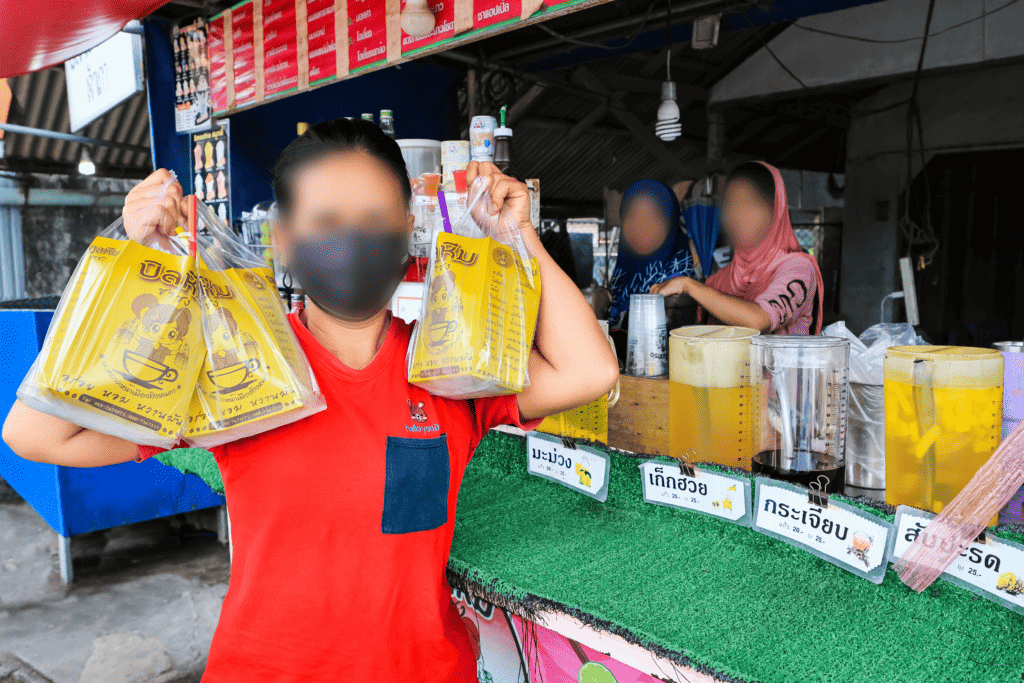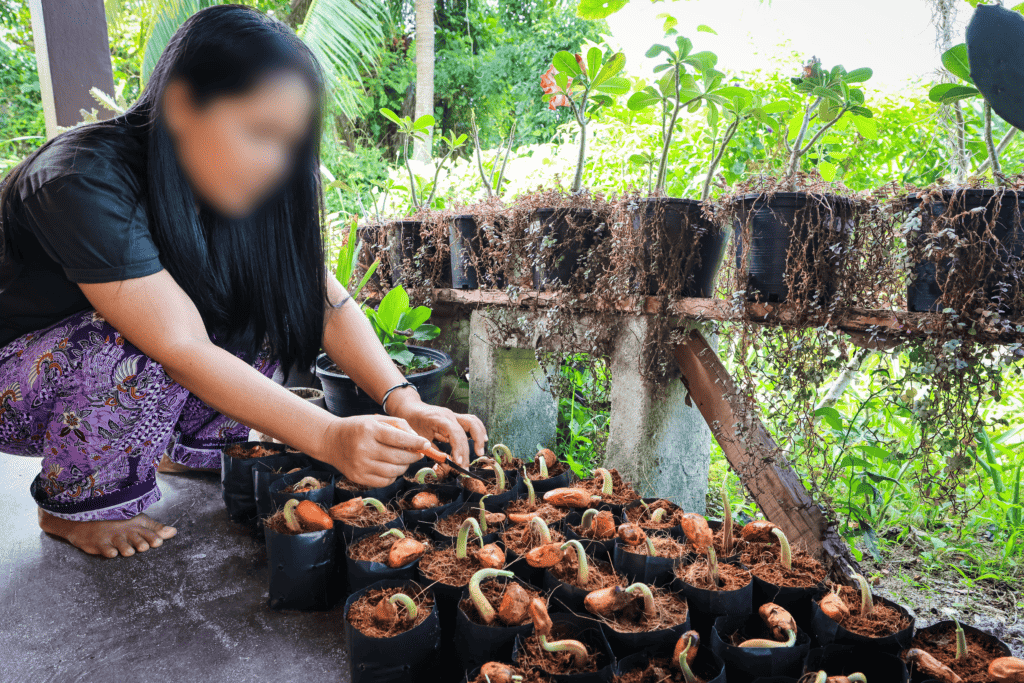The coconut vendor collapsed—unconscious—next to his stall in the open air market. Song saw his body slump, and rushed over, anxious to help. She wasn’t sure how her offer of assistance would be received: after months of trying to start a friendship with the middle-aged vendor and his wife, they had become irritated by her God-talk and told her in no uncertain terms to leave them alone. Now, as the vendor’s wife began to panic, Song took a risk.
“Can I pray for him?” she asked.
“Yes! If your God is real!” said the woman.
Song began to pray fervently, asking God to heal the vendor. After five minutes, he regained consciousness as his wife cried, “Your God IS real!”
A few weeks later, the couple told Song that they had decided to follow her God. Their former irritation melted away, and the three have become friends. Song continues to share the gospel with them through oral Bible stories.
It’s a dramatic tale. But it’s no surprise that Song was in just the right place at the right time: she’s been visiting the same market twice each day for the past 11 years.
* * *
In Southern Thailand, relationships are central to evangelism. It takes time and effort to connect with people, to prove that you are sharing the gospel out of love for them, not because you have ulterior motives, or are trying to somehow score cosmic brownie points. Anything less than real trust and care doesn’t work, because these people have a lot to lose.
The region can be volatile, with violent clashes between the major ethnic groups in the region occurring sporadically. Very few people are Christians, and those who choose to follow Jesus often pay a steep price—they may be forced out of their communities and even their families. Faith is not a choice that anyone takes lightly.
Song’s story is unusual in that becoming a Christian led to closer bonds with her family. Now 38 years old, she encountered Christ in her early twenties through the influence of her older sister, Noi, the current facilitator of a project focused on oral translations of key Bible stories. In contrast to the bright-eyed, gregarious Song, Noi projects an air of immense calm, but her gentle smile belies the incredible tenacity and determination of her faith in Jesus. Once Noi decided that her little sister needed Christ, Song couldn’t ignore her.
She began attending the regular prayer meetings that Noi hosted, and over time, her faith became deep and personal. Eventually, she joined the oral storying project, where she and other team members test and share the Bible stories that Noi crafts in their Southern dialect. For Song, this sharing has largely centered on the local marketplace.

She started visiting the market with her mother, who was a vendor there. Soon, she was stopping by the market every day, her two young daughters in tow. She says that she felt almost compelled to go there, even though she wasn’t quite sure why at first.
“When I would come home [from the market], I would ask myself, ‘Why should I go to the market? What’s the purpose? Why do I have to go there every day?’”
Despite her reservations, she kept going to the market twice a day, every day. She went so often that her husband joked that she must be the market’s owner. But her goals were relational, not financial: she’d visit the same vendors over and over again, trying to build friendships and sharing the oral stories that Noi created. The tea stall vendor near the entrance of the market became one of her first friends.
“I spent eight years sharing the [gospel] story,” Song says. “I bought a Thai tea morning, evening, morning, evening. Each day, 40 baht* for tea. Praise God that He gave me the money!”

This was a significant expense for her family budget, but she kept on, and eight years later, the vendor decided to put her trust in God. During those long years, Song was also building relationships with other vendors. The fish seller has become a Christian, and has paid the high price of being pushed out of her community. A handful of others have also chosen to follow Christ.
Song estimates that she has shared the oral stories with over 100 people. Everyone in the large marketplace knows that she is a Christian, and her warm presence and daily commitment have convinced many normally-reticent people to open up to her. Recently, she added two nearby 7-11 stores to her daily rounds so that she can reach out to more people.
She still feels compelled to visit the market, but the question of why doesn’t plague her anymore.
“At first, I asked myself why I have to go to the market every day. Now I know. . . . I want many people to come to Christ.”
*approx $1.50 CAD

More about Oral Bible Storying
Oral Bible stories are an important tool for sharing the gospel in cultures where people don’t have a literate lifestyle. They may know how to read, but it is not the preferred way to receive new or important information. Oral Bible stories capitalize on storytelling traditions and relational ways of giving and receiving information. The stories are firmly rooted in Scripture and typically created in sets, and must be consultant-checked for accuracy. They’re crafted to connect with specific audiences—while all story sets point to Jesus, they might be ordered or structured differently depending on the religious background of the audience.

